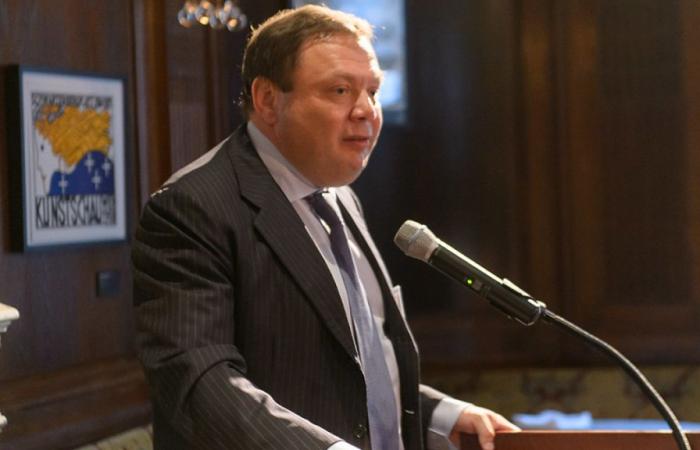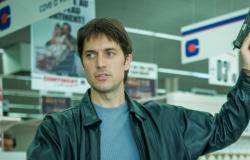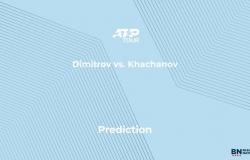At the beginning of March 2022, billionaire Mikhail Fridman found himself in a strange pickle in London. A mundane medical bill of 200 pounds (around 240 euros) became a problem. An expense of some sort that a billionaire wouldn’t normally think about for a second. But that day, his credit card was declined.
The day before, the Russian oligarch had been placed on the European Union sanctions list after Russia’s invasion of Ukraine, as a “main Russian financier” and “facilitator” of Putin’s inner circle. His accounts and therefore his assets were immediately frozen. His net worth is estimated at around twelve billion euros.
As Mikhail Fridman also has stakes in companies in Luxembourg, the Grand Duchy also enforced EU sanctions. The oligarch therefore filed an arbitration request for 15 billion euros against Luxembourg. But who is the man demanding such a large sum, and what is his connection with Luxembourg?
Who is Friedman?
Mikhail Fridman was born in 1964 in Lviv, the largest city in Western Ukraine (then the USSR). He went to school in his hometown and twice tried unsuccessfully to gain admission to the Moscow Institute of Physics and Technology (MIPT), which reportedly refused to admit him because he is Jewish. He eventually moved to Moscow to study, on a scholarship, at the Moscow Institute of Steel and Alloys, where he graduated in 1986.
Among his first professional activities in Moscow, he reportedly sold theater tickets, started a window cleaning business and operated a nightclub. However, he got rich by selling cheap crude oil at a large margin. He later co-founded the Alfa Group, which today is an investment conglomerate and also owns Russia’s largest private bank, Alfa-Bank.
By 1996, his fortune had grown exponentially. Mikhail Fridman was one of the original seven oligarchs, or “Semibankirchina”. A group of powerful businessmen who controlled a large part of the Russian economy, increasingly privatized in the 1990s, and who allegedly financed the re-election campaign of former President Boris Yeltsin in 1996. Mikhail Fridman denied these facts.
His business interests also included telecommunications and a significant investment (with two of his relatives) in the national oil company TNK (which later became TNK-BP). This stake was finally sold in 2012 for 28 billion dollars (25 billion euros).
Business interests in Luxembourg
Its first links with Luxembourg date from 2010 with the registration of ABH Holdings, an umbrella company for its Russian holdings. Its assets amounted to more than nine billion dollars (eight billion euros) at the end of 2023 and also include Alfa Bank.
After selling his stake in TNK-BP, Mikhail Fridman founded the company LetterOne in Luxembourg in 2013, with other Russian businessmen including his long-time partner Piotr Aven. This company invests in other companies outside Russia. Its main holdings include British healthcare retailer Holand and Barrett and Spanish retail company Dia. In the past, LetterOne had also invested in global company Uber.
Fridman founded the investment company LetterOne with other entrepreneurs. After EU sanctions, he resigned from the board. © PHOTO: LW-Archiv
According to the latest documents, dating from 2021, the company had total assets of more than $20 billion (around 18 billion euros) and made a profit of $3.5 billion that year ( 3.1 billion euros).
Following the EU sanctions, Mikhail Fridman resigned from the boards of ABH and LetterOne to ensure that these companies were not also sanctioned.
However, he claims that his investments have lost value because Luxembourg has frozen his assets, that is to say his investments in these companies. According to him, the total loss in value of its assets would amount to 15 billion euros (or 16 billion dollars). It is currently unclear how this figure – which Bloomberg says is higher than his net worth – was arrived at.
The future of the arbitration procedure and sanctions
Mikhail Fridman filed the request for arbitration against Luxembourg in mid-August in Hong Kong. Luxembourg Prime Minister Luc Frieden has since acknowledged the existence of the complaint and said it could be years before it is completed. The government also said it had appointed Paris-based law firm A&O Shearman as legal advisor in the case. However, the appointment of an arbitrator or agreement on the venue of the arbitration has not yet taken place. The European Commission said it was ready to support Luxembourg in the arbitration procedure.
Mikhail Fridman also contested the sanctions themselves. Currently, he argues against punitive measures, among other things, because he is not close to Vladimir Putin. He admits to having met the Russian autocrat on several occasions, but insists that these meetings were chance meetings of the Russian economic elite and not intimate, personal conversations.
In a ruling in April this year, the EU Court of Justice lifted the sanctions on the grounds that they were not justified. Fridman, however, remains on the EU sanctions list, because the court decision only applies to the period between February 2022 and mid-March 2023. The EU decided to extend the sanctions, so that They will continue to apply after March 2023 – a period to which the EU court ruling does not apply – and Fridman therefore remains on the sanctions list.
The stakes in the arbitration procedure between Mikhail Fridman and Luxembourg are high. It could have significant implications for sanctions regimes and investment contracts.
“Maybe I should clean the house myself.”
His reputation as a proactive litigator precedes him. So last year he turned to a London court when sanctions began to apply in the UK, where he was living at the time. Fridman argued that he was living on a monthly allowance of 2,500 pounds (nearly 3,000 euros), which was far below the amount he needed. He would be forced to eat at home… He therefore asked the court to grant him at least 30,000 pounds (nearly 36,000 euros) per month. He said this would just cover the monthly costs of maintaining and cleaning his north London villa. Fridman was unsuccessful and later joked, “Maybe I should clean the house myself.”
Shortly after Russia’s attack on Ukraine in early 2022, Mikhail Fridman wrote a letter to employees of his Luxembourg-based company LetterOne. In it, he criticized the war as a “tragedy”, asserted that “war can never be an answer” and called for an end to bloodshed.
This article was originally published on the Luxemburger Wort website.
Adaptation: Pascal Mittelberger






